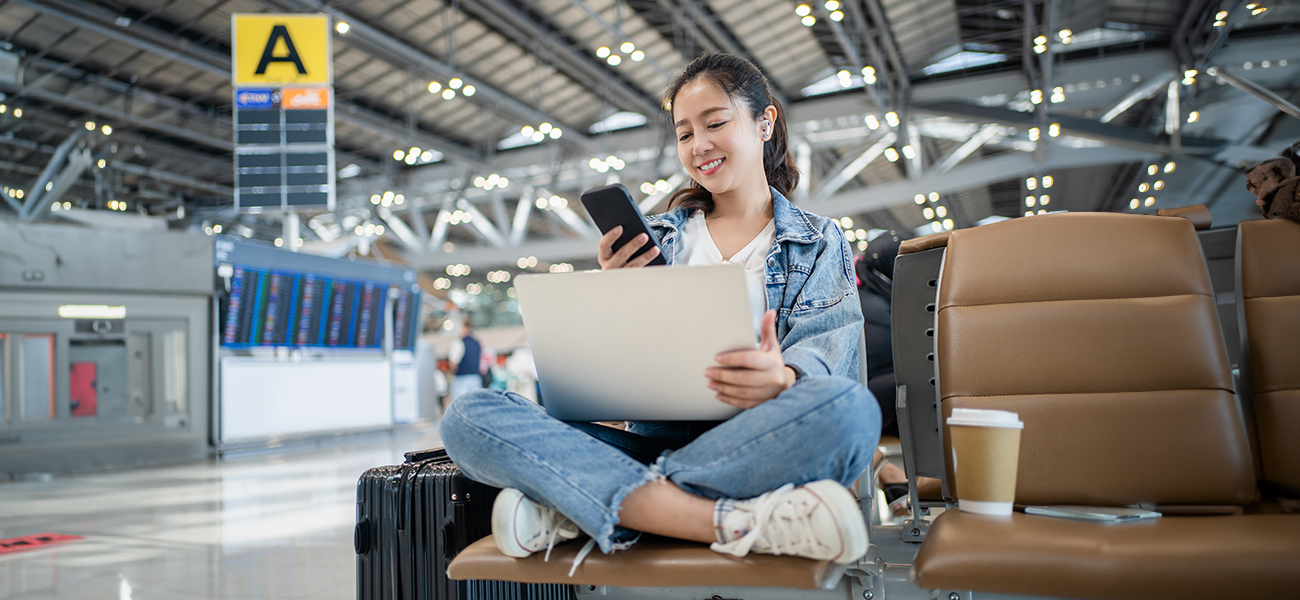
Embarking on a trip, whether for business or leisure, can be an enriching experience. However, it's crucial to be mindful of potential cybersecurity risks, especially when venturing abroad. Implementing some proactive measures before your journey can significantly enhance your cybersecurity and protect your personal information and UBC's confidential data.
Understanding Travel Risks and UBC Guidelines
Government of Canada Travel Advice and Advisories
- This resource provides essential information and official guidance to help you stay safe while traveling abroad. You can filter by your destination to view its current travel advisory, which ranges from "Exercise normal security precautions" to "Avoid all travel." Regardless of the listed risk level, it’s important to carefully review all sections of the travel advice—including Entry and Exit Requirements—as they may contain specific guidance on matters such as the use of electronic devices and cybersecurity precautions.
UBC's "Security Considerations for International Travel with Mobile Devices"
- This guideline outlines essential information about restrictions on encrypted devices in some countries and offers strategies to mitigate potential issues. Additionally, familiarize yourself with UBC's "Encryption Requirements" standard, which details the university's policies on encrypting devices containing high- or very-high-risk information.
Be Prepared for Digital Threats
Cybersecurity threats can manifest in various ways, from malware infections to data theft. The Government of Canada highlights the increasing vulnerability of travellers to cyber-based threats due to their reliance on electronic devices for information and communication. Here's a breakdown of some common threats:
- Public Wi-Fi: Public Wi-Fi networks, frequently found in airports, hotels, and cafes, are often unsecured, making them easy targets for hackers.
- Shared or Public Computers: These computers, commonly used in internet cafes or hotel business centres, may lack adequate security measures, leaving your data vulnerable.
- Bluetooth: Open Bluetooth connections can provide unauthorized access to your device and data.
- Data Roaming: Using data roaming while abroad can incur significant charges from your service provider.
Proactive Steps for Data Protection:
Before you embark on your trip, consider these proactive steps to strengthen your cybersecurity:
- Minimize Digital Footprint: Leave unnecessary electronic equipment at home to reduce the risk of theft or compromise.
- Data Backups: Create backups of important files and store them securely, separate from your travel devices. This ensures data protection in case of device loss or damage.
- Software Updates: Ensure all your devices, including laptops, tablets, and smartphones, have the latest software updates installed. These updates frequently include security patches that address vulnerabilities.
- Strong Passwords: Utilize strong, unique passwords for all your accounts and devices. Consider using a password manager to securely store and manage your passwords.
- Multi-Factor Authentication: Enable multi-factor authentication (MFA) whenever possible. MFA adds an extra layer of security by requiring a second form of verification, such as a push notification or generated passcode, in addition to your password.
- Anti-Virus Protection: Ensure your devices have up-to-date anti-virus software installed and active. This software can help shield your devices from malware infections.
It's important to stay informed about the latest cyber-safe travel practices. Regularly check the Canadian Government's official websites and webpages for updates on regulations, guidelines, and emerging threats. By staying informed and taking the necessary precautions, you can enjoy your travels with peace of mind, knowing that your digital security is protected.
Go Further...
UBC Resources
- International Travel with Electronics
- Travel with Electronics: Key Considerations
- Travel: All Destinations [printout]
- Information Security Standard U6 – Working Remotely
- International travel resources (SRS)
- Security Considerations for International Travel with Mobile Devices (CIO)
External Resources